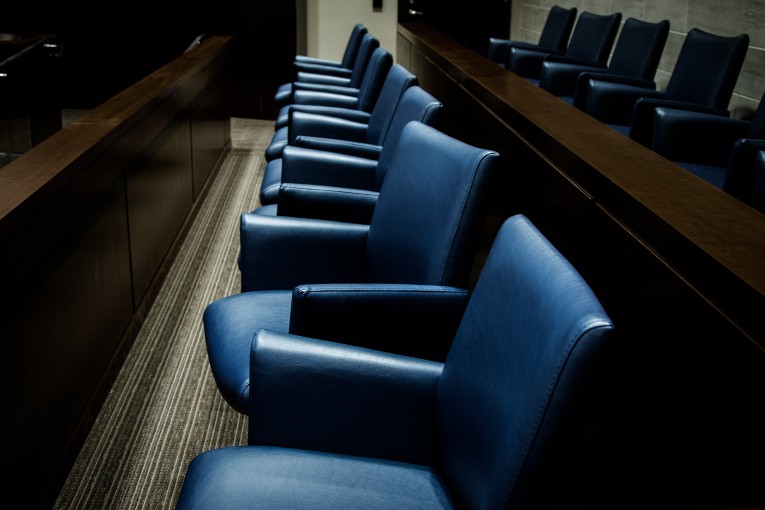
By David M. Greenwald
Executive Editor
Sacramento, CA – A pilot bill that impacts just San Francisco, but could have future implications statewide, passed the legislature this week and will head to the Governor’s desk.
AB 1452 by Assemblymember Phil Ting aims to see if higher pay leads to more racial and socio-economic diversity in juries. The bill would remove a barrier to serve by increasing the daily rate from $15 to $100 for low- to moderate-income jurors.
“Frankly, the current fifteen dollars a day is insulting. It barely covers parking or transportation to the courthouse and lunch,” said Ting. “We lose potential jurors because they can’t afford to miss a paycheck. In order for justice to be administered fairly, juries must be reflective of the communities they serve.”
San Francisco Deputy Public Defender Niki Solis, appearing on Everyday Injustice last week, noted, “I don’t think that amount has changed in well over a decade if not two.” She said for the past year they have been researching ways to compensate jurors who cannot serve due to hardship. “AB 1452 introduced by Phil Ting, helps us to not contradict current California law.”
Anne Stuhldreher, Director of the Financial Justice Project in the Office of the Treasurer for the City and County of San Francisco, told Everyday Injustice that most people don’t think about the imposition.
“The right to a jury of our peers is at the core of our justice system,” she said. “In terms of what we’re seeing is juries that are wealthier, that are whiter, and really don’t reflect the  diverse communities of our cities.
diverse communities of our cities.
“What we’re trying to make sure is that everyone has as fair a shot as possible at what is really one of our highest calls to duty,” Stuhdreher said.
She said this was a problem that everyone from the Public Defender’s Office to the DA’s Office and the Bar Association was seeing.
As Ting noted in a release this week, “With such low compensation, juries tend to be wealthier and lack racial diversity because many workers cannot afford to miss a paycheck and often seek to be excused.”
A San Francisco-based survey by the Administrative Office of the Courts of California found 35 percent of jurors say exercising their civic duty would impose a financial hardship.
While $100 a day is still not huge, Solis and Stuhdreher noted that it was close to what a seven-hour day with $15 an hour compensation would yield.
The belief then is, “The Be The Jury pilot program will test whether $100/day will improve demographics, as well as result in fairer verdicts.”
Ting’s office also cited studies that have shown “diverse juries spend more time in deliberations and are less likely to presume guilt, thereby improving the legitimacy of the criminal justice system.”
“As public defenders, we know first-hand how challenging it is for people accused of crimes to get a jury of their peers, and how disheartening it can be for our clients when nobody on the jury looks like them or comes from their communities. AB 1452 both removes the financial hardship that deprives thousands of San Franciscans from serving on juries every year and is a key tool in increasing diversity and equity in our courtrooms,” said San Francisco Public Defender Mano Raju.
Jurors would be eligible for this program if their household income is less than 80% of the Area Median Income, which is $71,700 for a single person or $102,500 for a household of four in San Francisco.
They must also meet one of the following criteria:
- Their employer does not compensate for jury service;
- Their employer does not compensate for the estimated duration of their service;
- They are self-employed;
- Or they are unemployed.
The San Francisco Financial Justice Project has already raised philanthropic funds and is ready to implement the higher pay in the Be The Jury pilot program, if AB 1452 is signed into law.
Ting’s office notes, as with all bills sent to the Governor in the final weeks of session this year, he has until October 10 to act.


Only to low- moderate-income? Did it not occur to the authors that those with higher incomes also have higher outflows like rent or mortgage, and that they therefore might be even more damaged by loss of income? Not everyone with higher income is ‘rich’ and can take a blow like a long trial. This is typical progressive (lack of) thinking.
I think their thinking is (A) most people who make over $80,000 are working hourly or going to get dinged for missing work for jury service, (B) $100 a day is about the equivalent of seven hours, $15 per hour (that would be $105 for those who want to be exact). (C) They are creating a special fund for this to begin with.
But it is a pilot and only in effect in SF, so maybe if it works well a permanent bill would include everyone.